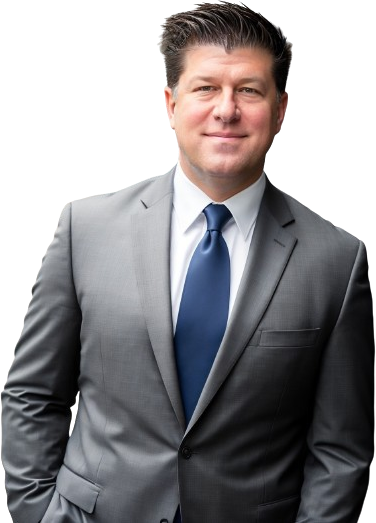
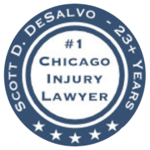

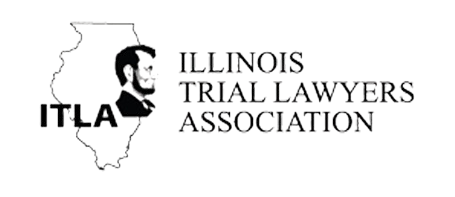
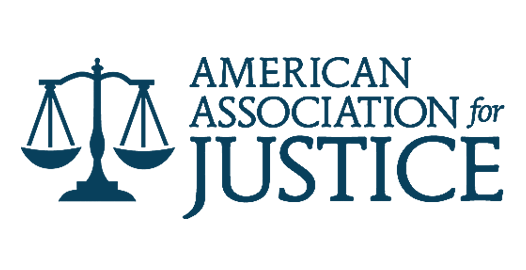
Let me tell you something personal.
When I was nine years old, my father—a truck driver and proud Teamster—was severely hurt at work. He was still a young man. That injury took everything from him. His neck, back, and spine were permanently damaged. He was never the same.
After he got hurt, he hired the wrong law firm. They were rude. They didn't explain anything. They didn't pursue all his options. His case dragged on for 17 years. Seventeen years. It ended with his own lawyer suing him for more fees.
We grew up poor once my father could no longer work.
That's why I became a personal injury lawyer. And it's why I handle surgical error cases different than most lawyers in Chicago.
I got a call a while back from a nurse named Jennifer in Lakeview. She went in for what should've been routine surgery at a well-known Chicago hospital. She woke up in terrible pain. The surgeon had accidentally cut her ureter during the procedure. She ended up needing three more surgeries. Six months off work. Medical bills stacking up so high she was afraid she'd lose her house.
Jennifer's story isn't rare. This stuff happens more than people think at Chicago hospitals—Northwestern Memorial, Rush, University of Chicago Medical Center, smaller community hospitals.
Here's what I want you to know: when a surgeon's negligence messes up your life, you don't have to deal with it alone. And you definitely shouldn't trust the hospital to make things right. They won't.
At my law firm, I make you a simple promise: No money out of pocket. No fee until we win. Free consultation available 24/7/365. Call any time at (312) 500-4500. Because surgical errors don't happen on a schedule, and neither does your need for answers.

Let's be clear about something right away.
Not every bad surgical outcome is malpractice. Surgery has risks. Even great surgeons face unexpected complications sometimes.
But here's the line: when a surgeon fails to meet the accepted standard of care in Chicago's medical community, and that failure hurts you, you've got a valid surgical error claim.
The question we ask in every case is simple: Would a reasonably competent surgeon in Chicago, facing the same situation, have made the same mistake?
If the answer is no, you probably have a case.
I've handled surgical error cases at every major hospital in Chicago and the suburbs. I know what negligence looks like. And I know how to prove it.
Surgical mistakes happen way more often than most people realize. More than 4,000 preventable surgical errors happen every year in the United States. That's 4,000 families whose lives get turned upside down because someone didn't follow protocol.
Here are the surgical errors I see most often in Chicago:
It sounds impossible, right? Operating on the wrong body part?
But it happens. I've represented people who had the wrong knee operated on, the wrong kidney removed, surgery on the wrong level of the spine. These are called "never events" because they should never happen.
Usually these mistakes happen because of failures in the surgical checklist. Someone didn't verify. Someone didn't double-check. Someone got lazy or distracted.
And you're the one who suffers.
Imagine going in for one type of surgery and waking up to find out they did something completely different.
Not only do you have to recover from unnecessary surgery, your original problem still isn't fixed. You're worse off than when you started.
I've seen this at hospitals all over Chicago—downtown, South Side, suburbs like Oak Park, Evanston, Naperville.
Yeah, this actually happens.
Surgery meant for one patient gets done on another patient. Usually because patients have similar names, or hospital staff mixed up charts or wristbands.
There are protocols to prevent this. When those protocols aren't followed, innocent people get hurt.
Anesthesia errors can be devastating.
I've handled cases with oxygen deprivation leading to brain damage, allergic reactions that weren't monitored properly, wrong dosing, failure to review patient medical history before giving anesthesia.
Your anesthesiologist has one job: keep you safe and pain-free during surgery. When they mess that up, the results can be life-changing or fatal.
This one makes people furious. And it should.
Surgeons use all kinds of tools during procedures. Clamps, sponges, scalpels, scissors. Every single one should be accounted for before they close you up.
Hospitals have counting protocols specifically to prevent this. But when surgical teams get rushed, distracted, or careless, mistakes happen.
I've recovered compensation for Chicago patients who had sponges, surgical tools, and other objects left inside their bodies. These cause serious infections, chronic pain, and need more surgery to remove.
Surgeons operating near delicate structures—nerves, blood vessels, organs—need to be extremely careful.
I've represented people with permanent nerve damage, perforated bowels, bladder injuries, damage to major blood vessels, nicked bile ducts during procedures.
These injuries often come from surgeon inexperience, fatigue, or just carelessness. And they can leave you with permanent disabilities that affect everything you do.
Everyone involved in surgery has to follow proper sanitary procedures.
Washing hands. Sterilizing instruments. Maintaining a sterile field.
When these protocols aren't followed, patients get dangerous infections—MRSA, sepsis, C. diff—that lead to serious complications, more surgeries, or death.
If you developed a serious infection after surgery, it might not have been bad luck. It might've been negligence.
Surgery doesn't end when the surgeon leaves the operating room.
Post-op care is critical. Medical staff have to monitor your vital signs, watch for excessive bleeding, check oxygen levels, respond immediately to any changes.
When doctors and nurses don't monitor properly or don't respond fast enough to warning signs, patients suffer brain damage, organ failure, blood clots, cardiac arrest, death.
I've handled cases where patients died because no one was paying attention after surgery. Those cases are heartbreaking. And they're preventable.
Illinois has specific laws about surgical malpractice cases.
First, you generally have two years from when you discovered (or should have discovered) the surgical error to file a lawsuit. There's also an absolute deadline of four years from the date of the negligent act, with limited exceptions.
Don't wait. Evidence disappears. Witnesses forget. Medical staff move to other jobs.
Second, Illinois requires an affidavit from a qualified medical expert saying your surgeon violated the standard of care. You can't do this on your own.
I work with top medical experts who review surgical records, figure out what went wrong, and can explain it clearly to a jury. These experts often make the difference between winning and losing.
Here's good news: Illinois does not cap damages in medical malpractice cases.
If you've suffered catastrophic injuries, you can recover full compensation for all your losses. Not some arbitrary limited amount like in other states.
Insurance companies hate this. But it's the law, and I use it to fight for every dollar you deserve.

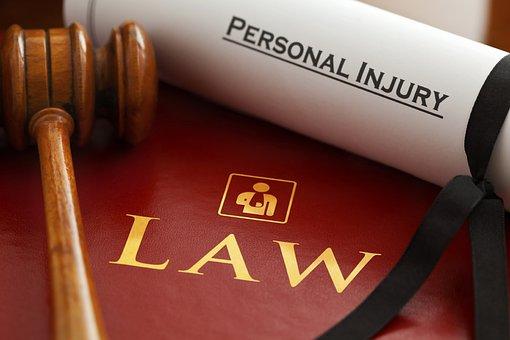

Let's talk about money. Because at the end of the day, money is how the legal system tries to make things right when someone's been hurt.
Here's what you can recover in a surgical error case:
These cover your measurable financial losses:
Medical expenses—all of them, past and future. If your surgical error needs corrective surgeries, rehab, physical therapy, or long-term treatment, every penny should be covered.
Lost wages—the income you've already lost because you couldn't work.
Reduced earning capacity—if your injuries prevent you from doing your old job or earning what you used to, you deserve compensation for that lost future income.
Ongoing care needs—home health aides, medical equipment, prescriptions, whatever you need because of the surgical error.
These compensate you for things that don't have a price tag but are just as real:
Pain and suffering—the physical pain you've gone through and will keep going through.
Emotional distress—the anxiety, depression, PTSD, and psychological trauma from what happened.
Loss of enjoyment of life—the activities, hobbies, and experiences you can't enjoy anymore because of your injuries.
Permanent disability or disfigurement—if you're permanently changed by what happened, you deserve compensation for that.
In rare cases with really outrageous conduct—like a surgeon operating drunk or a hospital covering up repeated errors—Illinois law allows punitive damages.
These are designed to punish the wrongdoer and send a message that this kind of behavior won't be tolerated.

Here's the truth: medical malpractice cases are among the most complex in all of law.
They require understanding medical terminology, surgical procedures, hospital protocols, expert testimony rules. You can't just read a few articles and figure it out.
I've spent years—and honestly, tens of thousands of dollars—building relationships with medical experts across specialties. I've learned how to read surgical reports and medical imaging. I know what questions to ask and which details matter.
I've also gone up against every major hospital system in Chicago. Northwestern Memorial, Rush University Medical Center, University of Chicago Medical Center, Advocate, Loyola, all of them.
These hospitals have aggressive legal teams. They have unlimited resources. They'll spend $500,000 defending a case they could settle for $100,000 just to avoid setting a precedent.
You need a lawyer who isn't intimidated by their tactics and knows how to fight back.
Find Out What YOUR Case Might Be Worth...for free.
Look, there are a lot of injury lawyers in Chicago. Some have bigger offices, bigger billboards, bigger advertising budgets.
So why choose me?
Because I've dedicated my entire legal career to representing injured people who otherwise wouldn't get the help they need.
After what happened to my father, I made a decision: what happened to my family will never happen to you or your family.
I don't just take whatever training Illinois requires and call it a day.
I've spent well over $100,000 on advanced settlement and trial training that most lawyers never consider. I fly all over the country to study with the top legal minds in personal injury law.
I'm a graduate of the world-renowned Gerry Spence Trial Lawyer's College—one of the most prestigious trial advocacy programs in the country. I'm also a graduate of the exclusive "The Edge" program.
Not one in 10,000 lawyers has completed the training I have.
Why? So you get the very best, most effective representation possible.
Some lawyers represent both sides. They'll take your case one day and defend a hospital the next.
Not me.
I only represent injured people. I will never represent an insurance company or a defendant in a surgical error case.
Your fight is my fight.
Some lawyers only want the easy, big-money cases. If your case looks tough or complicated, they pass.
I don't do that.
I take the tougher cases other lawyers turn down. Because I believe everyone who's been hurt by negligence deserves excellent representation—not just the cases that look easy to win.
One of the biggest complaints I hear about other lawyers: "I never heard from them. I didn't know what was happening with my case."
That won't happen with me.
My office will keep you informed every step of the way. When you call, someone answers. When you have questions, we answer them.
We talk like friends. Because that's how I treat my clients—like family.
I've handled thousands of injury cases over my career and recovered millions of dollars for clients.
I can't share specific settlement amounts due to confidentiality agreements, but I can tell you this:
I've successfully resolved cases involving surgical errors at Chicago's most prominent hospitals and suburban medical centers. I've recovered compensation for clients with everything from temporary injuries needing corrective surgery to permanent disabilities that changed their lives.
But more importantly, I've helped clients move forward.
Beyond money, I've connected clients with rehab specialists, helped them navigate insurance disputes, provided support during the darkest times of their lives.
Check out my reviews. My clients will tell you: I'm not just their lawyer. I became their friend.

If you think you've suffered a surgical error, here's what to do immediately:
See a doctor about your current condition. Your health comes first. Seeing another doctor can also help document the error.
Get copies of all your medical records. Operative reports, anesthesia records, nursing notes, pre-op and post-op records, everything. You have a legal right to these records.
Document everything. Take photos of visible injuries. Keep a journal of your symptoms and how they affect your daily life. Save all medical bills, prescription receipts, pay stubs showing lost income.
Don't talk to the hospital's risk management team or insurance adjusters without a lawyer. They're not your friends. Anything you say can be used against you later. Hospitals often try to get patients to sign releases or accept small settlements before they understand how bad their injuries really are.
Call me. The consultation is free. The advice is free. No obligation. We just talk.
Call (312) 500-4500 any time, day or night. Even at 3 AM if that's when you're lying awake worrying.

I represent surgical error victims throughout Chicago and the surrounding communities:
Chicago neighborhoods like Lincoln Park, Lakeview, Wicker Park, Logan Square, Bucktown, River North, Streeterville, Gold Coast, Old Town, Hyde Park, South Loop, Bronzeville, Bridgeport, Pilsen, Little Village, Humboldt Park, Albany Park, Andersonville, Edgewater, Rogers Park, West Loop, Ukrainian Village, Beverly, Mount Greenwood, and everywhere else in the city.
Suburbs including Evanston, Skokie, Wilmette, Winnetka, Glenview, Northbrook, Oak Park, Cicero, Berwyn, Naperville, Aurora, Joliet, Schaumburg, Arlington Heights, Des Plaines, Park Ridge, Elmhurst, Oak Lawn, Orland Park, Tinley Park, Bolingbrook, Wheaton, Downers Grove, and throughout Cook County, DuPage County, Lake County, Will County, and Kane County.
Surgical errors don't discriminate by zip code. Neither do I.
Whether your surgery was at a major downtown medical center or a suburban outpatient facility, I'm here to help.
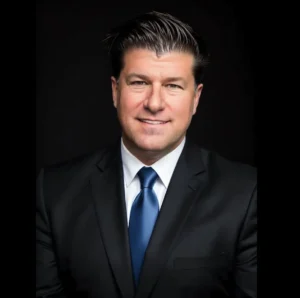
Let me answer the questions I get asked most:
Generally, two years from when you discovered or should have discovered the error. But there's an absolute deadline of four years from the date of the negligent act, with very limited exceptions.
Don't wait. Call me today for a free case evaluation.
Nothing upfront. Zero.
I work on contingency. I only get paid if you win. No money out of pocket and no risk to you.
I even advance all case costs. Getting medical records, filing lawsuits, paying for expert witnesses, depositions, everything.
You never pay unless you get paid first.
Pretty good deal, right?
Consent forms don't give surgeons permission to be negligent.
They protect against known risks of surgery—things that can happen even when everything is done right. They don't protect against preventable errors caused by carelessness or incompetence.
You still have legal rights even if you signed a consent form.
Yes.
Illinois has an "apology statute" that prevents apologies from being used as admissions of liability in court. An apology doesn't waive your rights or prevent you from filing a lawsuit.
If your surgeon apologized, that's often a sign they know they messed up.
You can't trust the hospital to investigate itself.
Hospitals conduct internal investigations to protect themselves, not you. They keep the findings secret. They control the story.
If a surgical error hurt you, you need an independent investigation by someone who works for you—not the hospital.
Through medical records, expert testimony, and investigation.
I work with top medical experts who review your surgical records, identify where the standard of care was violated, and can testify about what should've happened versus what actually happened.
These experts are often surgeons, anesthesiologists, nurses, and other medical professionals who aren't afraid to tell the truth about what their colleagues did wrong.
Most surgical malpractice cases settle before trial, but some need litigation.
I'll negotiate hard for a fair settlement. But if the insurance company won't offer what you deserve, I'm ready to take your case to trial.
Insurance companies know I'm not afraid of the courtroom. That's why I get results.
Depends on the circumstances.
Liability might extend beyond just the surgeon. Nurses, anesthesiologists, surgical assistants, and the hospital itself may all be responsible if their actions contributed to your injury.
During your free consultation, we'll talk about who should be held accountable in your specific case.
I'm so sorry for your loss.
If your loved one died because of surgical negligence, you may have a wrongful death claim. Illinois law allows certain family members to pursue compensation for their loss.
These cases are heartbreaking. They require a lawyer with compassion and experience. I've handled wrongful death cases involving surgical errors, and I understand how to support families through this.
Depends on the complexity and whether it settles or goes to trial.
Some cases settle in a few months. Others take a year or more, especially if we have to file a lawsuit and conduct discovery.
What I can tell you: I move cases efficiently without cutting corners. I'll work as fast as possible while making sure we get every dollar you deserve.
They're way more complex.
You're going up against hospitals with unlimited resources and legal teams whose entire job is defending these cases. You need medical experts to review records and testify. You need a lawyer who understands medicine, not just law.
Most personal injury lawyers don't have the training, resources, or experience to handle surgical malpractice cases well.
I do.
I've gone up against every major hospital system in Chicago and the surrounding areas.
Northwestern Memorial Hospital, Rush University Medical Center, University of Chicago Medical Center, Advocate Health (including Advocate Christ, Advocate Illinois Masonic, Advocate Lutheran General), Loyola University Medical Center, Mount Sinai Hospital, UI Health, Jesse Brown VA Medical Center, Stroger Hospital, and dozens of suburban and community hospitals.
I'm not intimidated by big hospital systems. I know their tactics, and I know how to beat them.
Yes.
Surgical errors don't just happen at large hospitals. They also happen at outpatient surgery centers, ambulatory surgical centers, and doctors' offices where procedures are done.
These facilities have the same duty to provide competent care. When they fail, they should be held accountable.
That's exactly why you should call me for a free consultation.
I'll listen to your story, review your medical records if you have them, and give you my honest opinion about whether you have a case.
If you don't have a case, I'll tell you that. If you do have a case, I'll explain your options and what we can do to help.
Either way, the consultation is free, and we end up as friends.
You may still have a case, depending on when you discovered the error.
The statute of limitations generally runs from when you discovered or should have discovered the injury—not necessarily from the date of the surgery itself.
Call me right away so we can evaluate your timeline and figure out whether you're still within the legal deadline to file.
Hiring Scott was one of the best moves I have made in my life. Scott is a down to earth person and attorney. Scott is a 5 star first class act who really knows his stuff. The Judge said his presentation was one of if not the best he had ever seen. Take my advice, hire Scott I’m sure you’ll be 200% satisfied I was.

Scott not only cares about the case, but he truly cares about his clients and that makes him the best lawyer I have ever met and hired! He won my case! He is thorough in everything he does. I highly recommend Scott, and will always refer him to family and friends.

I hired Scott DeSalvo upon a friend’s recommendation. His office kept me informed of developments as they happened, and I felt the settlement reached was fair considering my injuries. I would highly recommend Scott DeSalvo to represent your personal injury case.

Let me be blunt: the hospital's insurance company is not your friend.
I don't care how nice the adjuster sounds on the phone. I don't care if they tell you they just want to "help" or "get to the bottom of what happened."
Their job is to pay you as little as possible. Or better yet, nothing at all.
Here are the games they play:
They'll offer you a quick settlement before you know how bad your injuries really are. Once you sign, you can't come back for more money later—even if your condition gets worse.
They'll ask you to give a recorded statement. Anything you say will be twisted and used against you. Don't do it without talking to a lawyer first.
They'll delay, delay, delay. They hope you'll get frustrated and give up, or that you'll get desperate and accept a lowball offer just to get some money.
They'll use your own words against you. That's why you should never discuss your case with the hospital, their insurance company, or their lawyers without your own attorney.
They'll blame you. They'll say you didn't follow post-op instructions, or that your injury was a "known risk," or that your pre-existing conditions caused your problems.
Don't fall for it.
You need someone in your corner who knows these tactics and knows how to fight back.
Your fight is my fight.

Surgical errors can turn your life upside down in an instant.
I can't undo what happened to you. But I can fight to make sure you get every dollar of compensation you deserve under the law.
That means money for your medical bills (past, present, and future), your lost wages and lost earning capacity, your pain and suffering, your emotional distress, your permanent injuries and disabilities, everything else the law allows.
Remember my promise: No money out of pocket. No fee until we win. Free consultation available 24/7/365.
I'm available 24 hours a day, 7 days a week, 365 days a year. Call me at (312) 500-4500 any time, day or night.
Because when you're lying awake at 3 AM worrying about your future, you shouldn't have to wait until business hours for answers.
Don't let the hospital's insurance company minimize your claim or pressure you into a quick settlement. Let me review your case, explain your options, and fight for the justice you deserve.
We can meet at my downtown Chicago office, at your home, at a local coffee shop—wherever you feel comfortable. Or we can talk by phone or Zoom. Whatever works best for you.
The call is free. The consultation is free. But the peace of mind of having your questions answered? That's priceless.
Your recovery is my priority. Your justice is my mission. And your call is welcome any time, day or night.
There is one particular surgical error lawyer I'd like you to call. I'll let you guess who that is. (Yes, that's my sense of humor creeping in.)
Call (312) 500-4500 now. Let's talk about your case.

I Treat Every Client Like Family My father was treated like garbage by his lawyers. That will NEVER happen with me. When you call my office, you get personal attention. Your calls get answered. Your questions get answered. You're not just a case number to me.
Proprietary Case Processing Systems I've developed systems and software that help me discover more about your case, earlier than other lawyers. I beat the insurance company to the punch. That means better results and faster settlements.
Only Paid When You Win I've handled thousands of auto accident cases on a contingency fee basis. That means no money out of pocket for you. Zero. I advance all costs—medical records, police reports, filing fees, expert witnesses, court costs, everything. If we don't win, you don't pay me a penny.
Available 24/7/365 Auto accidents don't happen on a schedule. That middle-of-the-night car wreck. The weekend intersection collision. The holiday drunk driving accident. That's why I offer free consultations 24 hours a day, 7 days a week, 365 days a year. Call me at (312)-500-4500 anytime.

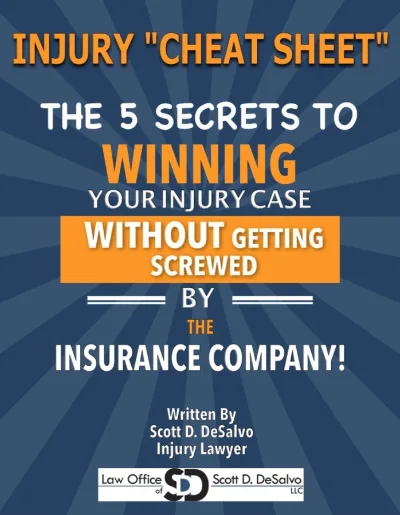

Scott DeSalvo founded DeSalvo Law to help injured people throughout Chicago and surrounding suburbs. Licensed to practice law in Illinois since 1998, IARDC #6244452, Scott has represented over 3,000 clients in personal injury, workers compensation, and accident cases.
No Fee Unless You Win | Free Consultation | 24/7 Availability Call or Text: (312) 500-4500
>>Read More
Main Office:
1000 Jorie Blvd Ste 204
Oak Brook, IL 60523
New Cases: 312-500-4500
Office: 312-895-0545
Fax: 866-629-1817
service@desalvolaw.com
Chicago and Other Suburban Offices
By Appointment Only